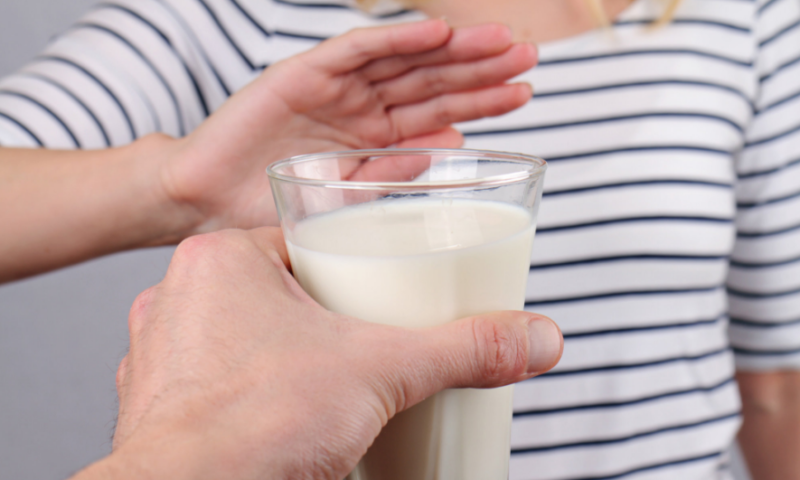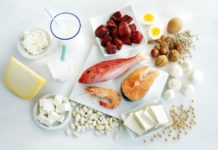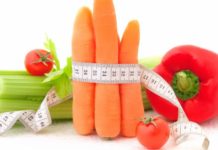After the birth of a baby, much changes in a woman’s life. In particular, change is about nutrition. A diet for nursing mothers is the key to the normal development of crumbs and the absence of health problems. But not always strict restrictions are justified, so it is worth coordinating the diet with a breastfeeding consultant.
Material Content:
The essence of the diet for nursing mothers
Breastfeeding is predominant over artificial. A baby is in need of breast milk, because it contains all the necessary nutrients that allow the newborn to develop correctly mentally and physically.
Important. With breastfeeding, the likelihood of diabetes and obesity is reduced by a factor of 2 to 4.
In order for neither a woman nor a baby to have health problems, nutrition should be safe, vitamin, to increase the amount of breast milk.
Postpartum Nutrition Fundamentals
Proper nutrition of a nursing woman requires compliance with some principles:
- Eat only homemade food. Use fresh and natural ingredients in the cooking process.
- There are up to 5 - 6 times a day. It is better to eat often, but fractionally. In no case should you overeat.
- Do not use allergenic foods. What kind of food an allergic reaction will develop in a baby is difficult to predict. That is why it is necessary to introduce new products into the diet one at a time and not more than once a week, monitoring the condition of crumbs for 2 days.
- Food should be varied. The diet should include: meat, fish, vegetables and fruits, cereals, dairy products.
- Provide an adequate drinking regimen. Drinking plenty of water helps increase lactation. You need to drink up to 2 liters of clean water per day.
- Cook by boiling, steaming, stewing or baking. You can’t eat fried.
- Monitor calorie intake. A woman should receive 2000 - 2300 kcal per day.
To add milk in 20 minutes Before feeding, you should drink a glass of warm tea with milk.
Nutrition requires the correct ratio of proteins, fats and carbohydrates (BJU), as well as filling the deficit of nutrients.
Recommended daily intake of the most important foods:
- vegetables - up to 0.5 kg (preferably consumed after heat treatment);
- fruit - 0.3 kg;
- porridge - 0.3 kg;
- meat and poultry - 0.2 kg;
- cottage cheese - 150 g;
- hard cheese - 30 g;
- other dairy products (kefir or ryazhenka) - 0.2 l;
- butter - 15 g;
- vegetable oil - 30 g.
Every day the menu should contain all of the above products, preferably in the same ratio.
Table of allowed and prohibited products
In order not to harm the baby’s digestive tract, you need to know which foods can be eaten and which ones can cause allergies or are hard to digest. The table contains a list.
| Allowed Products | Prohibited Products |
|---|---|
| • dairy products (kefir, fermented baked milk, yogurt without additives, cheese, cottage cheese); • lean meat and poultry; • all vegetables except red, bean and cabbage; • all fruits, except exotic, citrus and red; •dried fruits; • nuts (cashews and walnuts); •sea fish; • eggs (no more than 2 pieces per week); • cereals (buckwheat, oat, rice, wheat, barley); • pasta from hard varieties; • homemade pastille; • yesterday’s bread, biscuit cookies; • vegetable oil (especially olive or linseed); • herbal teas, compotes, uzvar, juices. | • seafood (caviar, mussels, squid, shrimp, etc.); •citrus; • grapes; •honey; • chocolate and other sweets; • flour products containing confectionery fats; • whole milk of high fat content; • smoked meats, sausages; • canned food; • pickles, marinades; • mayonnaise, ketchup, sauces; • spicy spices; • garlic, onions; • legumes, cabbage, eggplant, mushrooms; • fast food, convenience foods; •alcohol; •carbonated drinks; • exotic food; • any products containing dyes, preservatives and flavorings |
Note. It is necessary to limit caffeine-containing drinks, otherwise the baby will be overly active.
Nutrition Monthly
As the baby grows, his needs change, so the diet needs to be expanded. If the digestive tract of a newborn develops normally and there is no food allergy, then after reaching a baby of 6 months a woman can eat almost everything (except alcohol, smoked meats and other unsafe foods).
The most strict diet is in the first month after childbirth. The child’s body adapts to a new diet, so it is important to eat the safest food. These are vegetable soups, from meat - only rabbit or veal, low-fat sour-milk products (kefir, fermented baked milk), cereals (mainly buckwheat and rice), whole grain bread, biscuit cookies, vegetable oil, bananas and baked apples.
Do not forget about the abundant intake of fluids, as this contributes to lactation. You can drink dried fruit compote, green tea with milk. Closer to the end of the first month, you can add to the diet sea fish (hake), hard cheese and eggs.
In the future, the diet of a nursing mother for months looks like this:
- 2 - 3 months. The diet can be expanded a little. The menu includes low fat sour cream, cottage cheese, hard cheese, turkey meat, lean pork, seasonal raw vegetables (except cabbage and tomatoes), nuts, fruit drinks and fruit drinks from red berries, pastille, freshly squeezed juices no more than 100 ml per day (carrot , apple).
- 3 to 6 months. The menu should include butter, cereals containing gluten (barley and wheat), semolina, raw fruits (apples, pears, peaches), berries (cherries, cherries, plums), whole milk, supplement the diet with new varieties of fish, seafood. You can please yourself with homemade cakes, beekeeping products and homemade jam.To improve the taste, it is allowed to use spices - black pepper, onion, garlic (in a reasonable amount).
If you need to introduce a new product into the diet, it is best to do this in the morning.
Features of a lactose-free diet
Mother's milk is not always beneficial for the baby, sometimes it is dangerous to his health. This happens with lactase deficiency in the newborn. The essence of this disease is lactose intolerance (milk sugar) - a substance that is found in milk, including breast milk.
To reduce its concentration, a woman should abandon whole milk. It must be remembered that lactose is also found in milk powder, cheese, cream, ice cream and many sweets. Before you use a store product, you should familiarize yourself with its composition. If lactose is present, you need to abandon it.
Note. First breast milk is less oily, but contains a high concentration of sugar. It should be decanted, and not given to the baby.
A woman needs to look for an alternative to lactose products. It can be soy, rice or coconut milk. Fermented milk products are equally useful substitutes.
Hypoallergenic diet of a nursing mother
Not always a diet is enough to avoid digestive problems or allergies in the baby. Unfortunately, the prevalence of allergic reactions in infants is very high.
At the first signs of an allergy in a baby, you should switch to a hypoallergenic diet. A diet for a nursing mother will help you choose a pediatrician.
From the menu you need to exclude any food that can become an allergen:
- milk and dairy products;
- eggs
- nuts
- seafood;
- gluten-free cereal;
- citrus;
- red fruits and vegetables, bananas.
Allergens can accumulate, so allergenic symptoms persist even after the start of hypoallergenic nutrition. This feature leads to the fact that identifying a product that caused an allergic reaction is very problematic.
The hypoallergenic menu allows the use of rabbit, turkey, rice porridge, vegetable soups, dried fruit compotes, dried bread, baked green apples, pears and plums. If an allergen product is excluded, then the symptoms of allergies will begin to decrease. Only after the disappearance of all signs can you gradually expand the diet, but watching the baby’s reaction.
The benefits and harms of lactation
Dietary nutrition helps the baby’s digestive tract to function normally and prevents colic, bloating, upset stools and allergic reactions. Babies who are breastfed, up to six months of age, do not suffer from infectious diseases. They form a strong immunity and a healthy intestinal microflora.
If the mother will only use products safe for lactation, then she will not only maintain the health of the newborn, but also improve her well-being.
The correct diet after childbirth relieves constipation, hemorrhoids, vitamin deficiency, replenishes the energy reserve, allows you to maintain energy and recover faster after the baby is born.
Dietary nutrition, like lactation, contributes to weight loss, which allows a woman to get in shape.
But severe restrictions on food without indications to this can do much harm. Malnutrition will lead to nutrient deficiency, depletion and decreased lactation. And this, in turn, will affect the health of the baby. If a child develops well, he is not bothered by colic, there are no problems with stools and allergic manifestations, a woman should gradually expand her diet. Of course, we are not talking about junk food. The most strict diet should be only in the first month, and even, rather, only in the first 2 weeks.



















